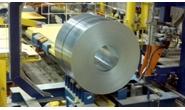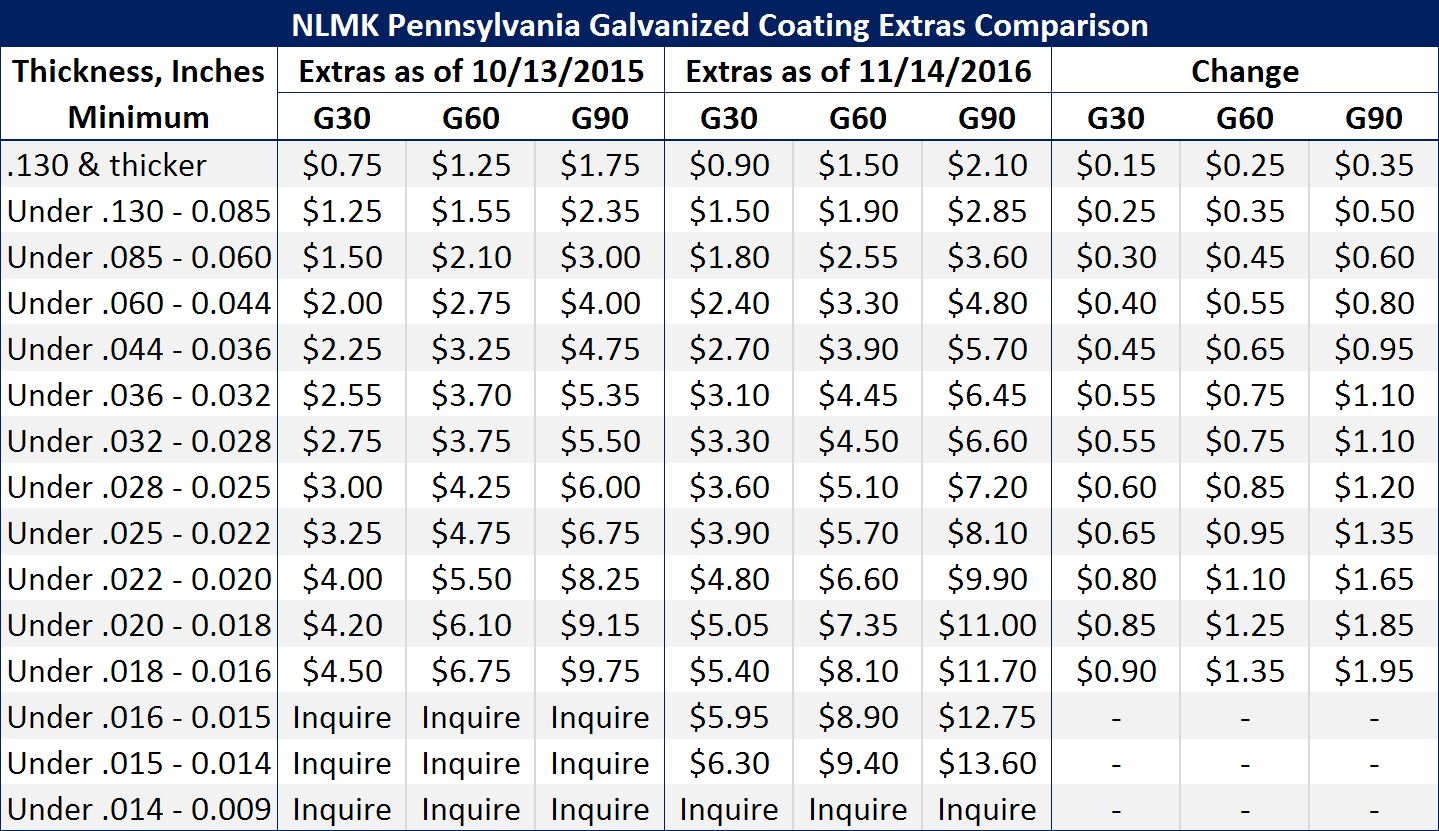Prices

November 15, 2016
NLMK USA Revises Galvanized Coating Extras
Written by John Packard
On Monday NLMK USA advised their customers of their intention to begin collecting new zinc extras on galvanized steel products effective immediately. The new extras are in response to zinc spot prices being at the highest level in the past five years. Zinc closed Monday at $1.1716 per pound up $0.0608 since this past Friday close.
The new extras increase coating prices from as little as $0.15/cwt on .130 G30 to as much as $1.95/cwt on .016/.017 G90.
Steel Market Update (SMU) has done a quick analysis of the new coating extras in the table below. The far right hand column is the existing extras prior to today’s change, the middle column references the new extras and the far right column is the amount of the change for each item.
SMU Note: We have been expecting a change in coating extras ever since zinc spot prices exceeded $1.00 per pound. We expect the other mills will increase their extras in the days ahead and the extras may not match those of NLMK USA.








